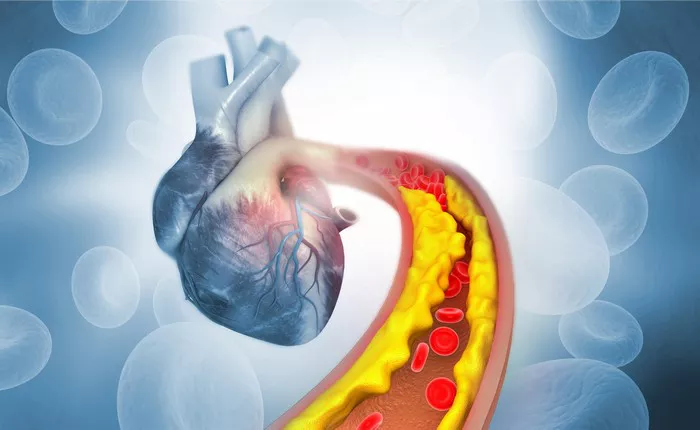Cholesterol plaque buildup in arteries is a significant concern for many individuals, especially those at risk of cardiovascular disease. The question of whether cholesterol plaque can go away is complex and depends on various factors. In this article, we’ll delve into the mechanisms of cholesterol plaque formation, explore treatment options, and discuss the potential for plaque regression.
Understanding Cholesterol Plaque Formation
Cholesterol is a waxy substance that is essential for building cells and producing certain hormones. However, when levels of cholesterol in the blood become too high, it can lead to the accumulation of plaque in the arteries. This process, known as atherosclerosis, involves the deposition of cholesterol, calcium, and other substances on the arterial walls.
As plaque builds up over time, it can narrow the arteries and restrict blood flow. This can lead to serious health issues such as coronary artery disease, heart attack, and stroke. Managing cholesterol levels and addressing plaque buildup are crucial for maintaining cardiovascular health.
Treatment Approaches for Cholesterol Plaque
1. Lifestyle Modifications: Making changes to diet, exercise, and overall lifestyle can have a significant impact on cholesterol levels and plaque buildup. A heart-healthy diet rich in fruits, vegetables, whole grains, and lean proteins, along with regular physical activity, can help lower cholesterol and reduce plaque formation.
2. Medications: In some cases, medications such as statins, which lower cholesterol levels, may be prescribed. Other medications like blood thinners and antiplatelet drugs can help prevent blood clots and reduce the risk of complications from plaque buildup.
3. Interventional Procedures: For more severe cases of plaque buildup, interventional procedures such as angioplasty and stent placement may be necessary. These procedures can help open blocked arteries and improve blood flow.
Can Cholesterol Plaque Go Away?
The question of whether cholesterol plaque can go away entirely is a topic of ongoing research and debate in the medical community. While lifestyle changes and medications can help slow the progression of plaque buildup and even promote plaque regression to some extent, complete removal of plaque may be challenging.
Studies have shown that aggressive lipid-lowering therapies, such as high-dose statin medications, can lead to a reduction in plaque volume over time. Additionally, lifestyle interventions that target multiple risk factors, such as smoking cessation and blood pressure control, can contribute to plaque stabilization and regression.
However, the extent to which plaque can be reversed varies among individuals and depends on factors such as the severity of plaque buildup, overall health status, and adherence to treatment regimens. In some cases, plaque may become calcified or hardened, making it more resistant to treatment.
Factors Influencing Plaque Regression
Several factors can influence the potential for plaque regression:
1. Treatment Adherence: Consistent adherence to prescribed medications and lifestyle recommendations is crucial for achieving and maintaining plaque regression.
2. Duration of Treatment: Longer-term treatment with lipid-lowering medications and lifestyle interventions may lead to more significant plaque regression.
3. Individual Health Profile: Factors such as age, genetics, presence of other medical conditions, and overall cardiovascular risk profile can impact the likelihood of plaque regression.
4. Monitoring and Follow-Up: Regular monitoring of cholesterol levels, imaging studies (such as coronary angiography), and follow-up with healthcare providers are essential for assessing plaque regression progress and adjusting treatment as needed.
Limitations and Considerations
It’s important to note that while plaque regression is achievable to some degree, complete removal of all plaque may not always be possible. Additionally, plaque regression does not guarantee freedom from future cardiovascular events, as other factors such as inflammation and plaque instability also play a role in heart disease.
Individuals with significant plaque buildup or a history of cardiovascular events should work closely with their healthcare providers to develop a personalized treatment plan that addresses their specific needs and risk factors. This may include a combination of lifestyle modifications, medications, and interventional procedures as appropriate.
Conclusion
While efforts to promote plaque regression through lifestyle changes and medical interventions can be effective, the complete disappearance of cholesterol plaque may not always be attainable. Focus should be placed on optimizing cardiovascular health, managing risk factors, and working towards plaque stabilization and reduction to improve long-term outcomes. Regular monitoring and collaboration with healthcare providers are essential for managing cholesterol plaque and reducing the risk of cardiovascular events.


